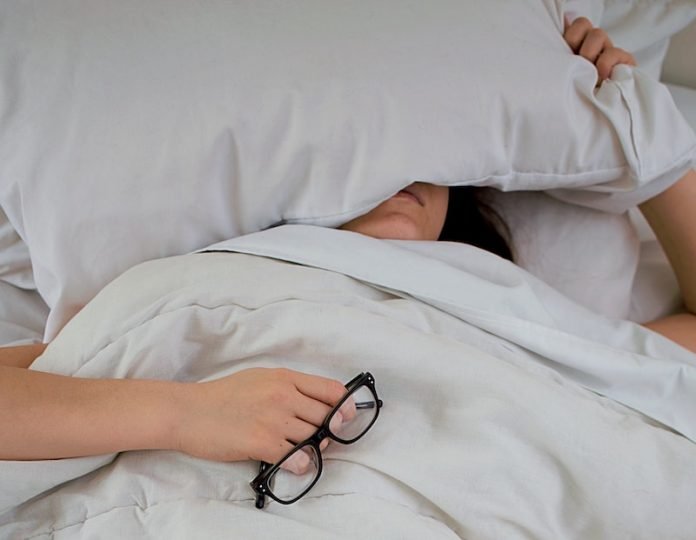
In a new study, researchers found older people with depression may be at a much higher risk of remaining depressed if they are experiencing persistent or worsening sleep problems.
They analyzed data from almost 600 people over 60 years old who visited primary care centers in the Northeast U.S and had major or minor depression.
The researchers found that those with a pattern of worsening insomnia symptoms over the following year had almost 30 times the odds of having a diagnosis of major depression at the end of that year, compared to patients whose sleep had improved during that year.
The patients with worsening insomnia also were much more likely to have a diagnosis of minor depression. Additionally, they were more likely to report suicidal ideation at the end of the year.
Compared to patients whose sleep improved, the study found that those with insomnia symptoms that persisted but did not worsen also were more likely to have persistent major or minor depression, but their risk was not as high as patients with worsening sleep.
These results suggest that, among older adults with depression, insomnia symptoms offer an important clue to their risks for persistent depression.
The research was conducted by a team at Johns Hopkins Bloomberg School of Public Health.
Sleep, or lack thereof, has long been considered a potential risk factor for mood disorders and has more recently been studied in relation to suicidal thinking.
In an earlier study of older adults living in low- and middle-income countries, the team found that older adults reporting insomnia symptoms and poor sleep quality were more likely to report having suicidal thoughts and that those with insomnia symptoms were more likely to report a prior suicide attempt.
In their new analysis, the researchers examined data from sleep and mental health study conducted from May 1999 to August 2001, covering older adults at 20 primary care centers in New York City, Philadelphia, and Pittsburgh.
The researchers examined the patients’ reports of insomnia symptoms—chiefly difficulty falling asleep or waking without a full night’s sleep over 12 months, and sorted them into three groups based on their reports:
346 patients who started with fewer sleep problems and slept much better by the end of the study; 158 who started with more sleep problems and stayed the same or improved only slightly over the year; and 95 patients who at baseline had more sleep problems and worsened over the year.
The analysis showed that, compared to the patients whose sleep had improved, those with worsening sleep disturbances had 28.6 times the odds of having a diagnosis of major depression at the end of the year—as opposed to no longer having a depression diagnosis.
The patients whose sleep worsened also had 11.9 times the odds of having a diagnosis of minor depression at the end of the year and were 10% more likely to report having suicidal thoughts at the end of the year.
The results suggest that older adults who are being treated for depression and whose sleep problems are persistent or worsening need further clinical attention.
They also suggest that treating sleep problems should be explored further as a possible way to improve depression outcomes in older people—as well as the poor cognitive and general health outcomes that have been tied to disturbed sleep in this population.
One author of the study is Adam Spira, Ph.D., a professor in the Department of Mental Health at the Bloomberg School.
The study is published in the journal Sleep.
Copyright © 2020 Knowridge Science Report. All rights reserved.



